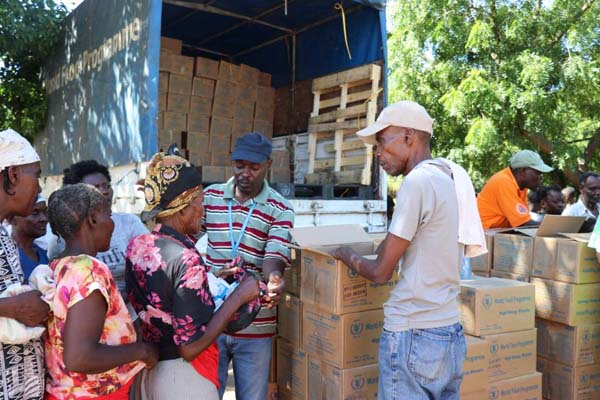WFP Ramps Up Assistance To Islands Of The Caribbean Battered By Hurricane Irma

Worst hit by the hurricane – one of the most powerful Atlantic storms ever recorded – has been the Eastern Caribbean where as many as 200,000 people have been affected. Some islands, including Barbuda and St. Martin, are reported to be near uninhabitable.
An operational hub for the distribution of supplies to this region is being established on Antigua. WFP is providing some 30 metric tons of high-energy biscuits, enough to feed more than 17,000 people for three days. These are being airlifted by WFP from Haiti to the hub in Antigua (where the population of Barbuda has been evacuated) and to nearby St. Martin.
Priority is being given to the most vulnerable, including families living in shelters, families with malnourished children, female-headed households, pregnant and nursing women, and the elderly. This life-saving assistance can then be followed up where necessary by cash-based assistance for thousands of people in the Eastern Caribbean whose livelihoods have been ruined.
WFP is also launching an emergency operation for the Western Caribbean islands including Turks and Caicos territory which is serving as an operational hub for that region. Some 10 metric tons of High-Energy Biscuits (HEB) are being airlifted there to help 8,500 vulnerable people.
Also being transported by WFP to both the Eastern and Western Caribbean are crucial non-food items, including mobile storage units, tarpaulins, prefabs, generators and other logistics and telecommunications support equipment. Meanwhile, WFP is putting together special teams to assist with damage and needs assessment, the management of food assistance and provision of supply chain support.
Some 60 metric tons of HEB were airlifted from the United Nations Humanitarian Response Depot in Dubai to Haiti last week. Haiti was not as badly hit as had been feared. However, heavy rains caused flooding, particularly affecting the northern departments and causing more than 10,000 people to be evacuated to shelters.
At the request of the Government of Haiti, WFP started to distribute HEB on 10 September to thousands of displaced people in shelters in the north-east of the country. WFP remains ready to support national and local authorities with evaluating damage and assisting those affected.
Cuba sustained considerable material damage, including to its agricultural production facilities. WFP has offered to support the government of Cuba by providing food where it is needed. WFP has a long-standing operational presence and substantial food stocks already on the island.
WFP’s Executive Director David Beasley is hoping to visit Cuba this week to witness the damage done there and to discuss with the government what further support may be required by the United Nations.
# # #
WFP is the world's largest humanitarian agency fighting hunger worldwide, delivering food assistance in emergencies and working with communities to improve nutrition and build resilience. Each year, WFP assists some 80 million people in around 80 countries.
Follow us on Twitter @wfp_media
For more information please contact (email address: firstname.lastname@wfp.org):
Frances Kennedy, WFP/Rome, Tel. + 39 0665 133 725, +39 3467 600 806
David Orr, WFP/Rome, Tel. +39 0665 133 268, Mob. + 39 3402 466 831
Gregory Barrow, WFP/London, Tel. +44 20 72409001, Mob. +44 7968 008474
Bettina Luescher, WFP/Geneva, Tel. +41 22 917 8564, Mob. + 41-79 842 8057
